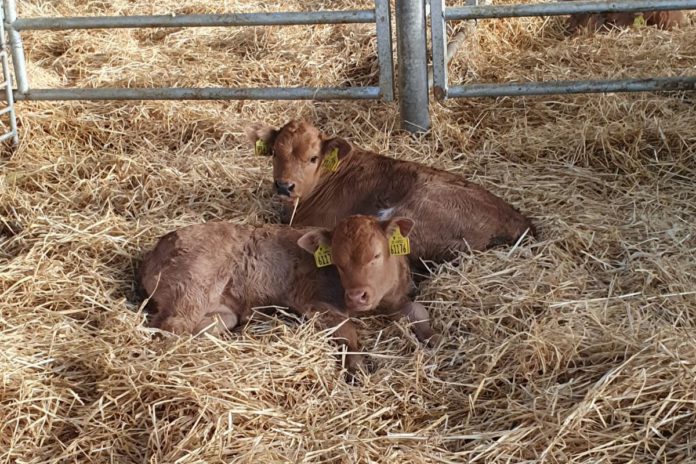Calves’ ability to focus and learn are “seriously” impacted when their milk allowance suddenly reduces, and they could experience negative feelings of hunger.
That is according to a new study spearheaded by Dr Ben Lecorps, Animal Welfare Lecturer in the Bristol Veterinary School, who undertook the research whilst working in the Animal Welfare Program at the University of British Columbia, Canada.
This study – which is published in Royal Society Biology Letters – looked at the impact of milk restriction on calf cognition in two experiments using a modified hole-board test.
The college lecturer expected that the sudden reduction of milk allowance, mimicking what would happen at weaning, would be associated with calves being too hungry to focus on a learning task.
Experiments
To investigate, the research team utilised a test where calves have to remember the location of 4 milk-filled bottles among 15 bottles.
They explored whether a sudden milk restriction (reduced from 12 to 6 litres per day) would negatively impact the calves’ capacity to remember where the rewarded bottles are (experiment 1), and whether it would disrupt the capacity to re-learn after changing locations of the bottles (experiment 2).
Calves are often given much less milk than they would want to drink (approximately half) and switched to solid feed abruptly and at an early stage at weaning.
Consistent with the idea that milk-fed calves experience hunger when the milk supply declines, the study found that cognitive performance dropped when milk allowance was reduced by half (experiment 1).
Furthermore, the research also showed that calves fed restricted quantities of milk are slower to learn new rules (experiment 2).
Although the results do not provide direct evidence that calves felt too hungry to focus, the effect on cognition is consistent with the negative experience of ‘feeling’ hunger.
Improved animal welfare
According to the author, these type of studies can help identify farm animal care practices that, when mitigated, lead to improved welfare for many dairy calves.
He stated that the results show that calves’ ability to focus is seriously reduced when their milk allowance is suddenly decreased, suggesting that they most likely experience negative emotions associated with hunger.
He commented: “We need to know more about what calves feel if we want to change routine farm practices to improve their welfare.”
“Although we may never be able to fully understand what a calf feels or thinks, this type of study gets us closer to this goal.”
“Our results support the growing body of evidence that weaning from milk can induce hunger, particularly when animals are pushed to switch to solid feed (by decreasing milk allowances) abruptly.”
“Our study also shows that it may be hard for calves to learn new tasks when they are experiencing high levels of hunger, which is concerning because it may slow down how fast they learn to feed from another source.”
Next step
The next step for Dr Lecorps and his graduate students in the Bristol Veterinary School is to look at whether calves who are fed restricted quantities of milk during the pre-weaning period show lower cognitive abilities compared to calves fed quantities of milk without restrictions.
They expect that calves who are fed restricted amounts of milk will be slower to learn, because they experience hunger at a level that is more disruptive.
The research team advise that farmers implement ways to mitigate the negative consequences associated with weaning of milk abruptly, such as –
- Feeding calves more milk at a younger age;
- gradually reducing the quantity of milk provided instead of reducing abruptly at weaning.
Previous article on That’s Farming:
Scientists ‘teaching’ robots to detect mastitis ‘more accurately’





